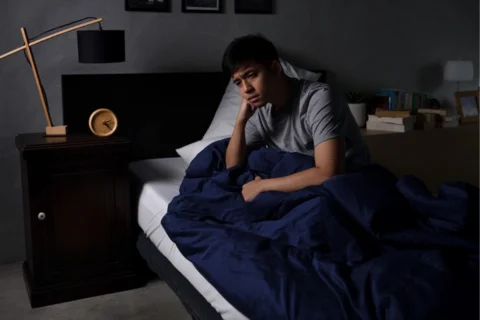Depression and Anxiety | Best Solution for Depressed, anxiety
Introduction
Depression and anxiety are two of the most common mental health challenges affecting people worldwide. These conditions often overlap, making them difficult to differentiate and manage. Understanding the nuances of both Anxiety and Depression is essential for those experiencing these conditions and those supporting them. In this blog, we will explore the signs and symptoms, causes, and coping strategies for depression and anxiety, offering practical tips and insights into managing these conditions effectively.
Understanding Anxiety and Depression
Depression is more than just feeling sad or going through a rough patch; it’s a severe mental health condition that affects a person’s ability to function daily. Common symptoms include persistent sadness, hopelessness, fatigue, and a loss of interest in activities once enjoyed. On the other hand, anxiety is characterized by excessive worry or fear that can interfere with daily life. It’s normal to experience anxiety occasionally, but when these feelings are constant or overwhelming, it can lead to an anxiety disorder.
While depression and anxiety are distinct, they often co-occur, meaning many people experience both conditions simultaneously. This overlap can complicate diagnosis and treatment, making it even more critical to understand their differences and similarities.

The Symptoms of Depression and Anxiety
Recognizing the symptoms of depression and anxiety is the first step in seeking help. Symptoms of depression include:
- Persistent sadness or low mood
- Loss of interest in activities once enjoyed
- Changes in appetite or weight
- Sleep disturbances (insomnia or oversleeping)
- Fatigue or lack of energy
- Feelings of worthlessness or excessive guilt
- Difficulty concentrating or making decisions
- Thoughts of death or suicide
Anxiety symptoms often include:
- Excessive worry or fear
- Restlessness or feeling on edge
- Rapid heartbeat or palpitations
- Shortness of breath
- Trembling or shaking
- Sweating
- Gastrointestinal issues (like nausea or diarrhea)
- Difficulty concentrating or feeling blank
Understanding these symptoms can help recognize the presence of these conditions in oneself or others, facilitating early intervention and support.
The Causes of Depression and Anxiety
The reasons for depression and anxiety are multifaceted, usually applying a variety of genetic, biological, environmental, and psychological elements.
- Genetic Factors: Family history plays a significant role in the risk of developing Anxiety and Depression. There is an increased risk if a parent or sibling has experienced these conditions.
- Biological Factors: Imbalances in brain chemistry, particularly involving neurotransmitters like serotonin, norepinephrine, and dopamine, can contribute to depression and anxiety. Hormonal imbalances, such as those seen in thyroid disorders, can also play a role.
- Environmental Factors: Traumatic experiences, such as abuse, neglect, or loss of a loved one, can trigger depression and anxiety. Stressful life events, including financial difficulties, relationship problems, or work-related stress, are significant contributors.
- Psychological Factors: Individuals with low self-esteem, perfectionistic tendencies, or a tendency to overthink are more prone to developing depression and anxiety. Personality traits and coping styles can significantly influence the likelihood of experiencing these conditions.

Coping Strategies for Depression and Anxiety
Managing depression and anxiety involves a combination of professional treatment and self-help strategies. Here are some effective methods:
- Professional Help: Seeking therapy from a mental health professional, such as a psychologist or psychiatrist, is often the first step. Cognitive Behavioral Therapy (CBT) is a highly effective treatment for both Anxiety and Depression, helping individuals challenge negative thought patterns and develop healthier thinking habits. Medicine, such as antidepressants or anti-anxiety drugs, may also be specified.
- Mindfulness and Meditation: Practices like mindfulness meditation can help individuals stay grounded in the present moment, reducing the impact of negative thoughts and feelings. Mindfulness has been shown to reduce symptoms of anxiety and depression by promoting relaxation and a sense of calm.
- Exercise: Frequent physical activity has been proven to elevate mood and decrease anxiety. Exercise releases endorphins, natural mood lifters that can help alleviate symptoms of depression and anxiety. Even a daily walk or gentle yoga practice can make a significant difference.
- Healthy Diet: Nutrition plays a critical role in mental health. A balanced diet of fruits, vegetables, lean proteins, and whole grains can help regulate mood and energy levels. Avoiding alcohol, caffeine, and processed foods can also help stabilize mood and reduce anxiety symptoms.
- Sleep Hygiene: Quality sleep is essential for mental well-being. Establishing a regular sleep routine, avoiding screens before bedtime, and creating a relaxing sleep environment can improve sleep quality and reduce symptoms of depression and anxiety.
- Social Support: Bonding with friends, family, or help groups can supply dynamic support and decrease emotions of isolation. Sharing experiences and receiving encouragement from others can be incredibly therapeutic.
- Journaling: Writing down thoughts and feelings can help process emotions and reduce the intensity of anxiety and depressive symptoms. Journaling provides a safe outlet for expressing and organizing thoughts, which can be particularly helpful during challenging times.
- Setting Realistic Goals: Setting achievable, realistic goals can give a sense of purpose and accomplishment, helping to counter feelings of helplessness associated with depression. Splitting tasks into smaller, effortless steps can also decrease crush and anxiety.
- Breathing Exercises: Deep breathing techniques can help calm the mind and body, reducing anxiety symptoms. Diaphragmatic breathing or the 4-7-8 technique can quickly alleviate stress and promote relaxation.
- Limit Media Consumption: Constant exposure to negative news and social media can exacerbate feelings of anxiety and depression. Setting boundaries for media consumption and focusing on positive or uplifting content can improve mental well-being.

The Role of Lifestyle Changes in Managing Depression and Anxiety
Lifestyle changes play a significant role in managing depression and anxiety. Making small, sustainable changes in daily habits can significantly impact overall mental health. For example, incorporating a daily exercise routine, even if it’s just a short walk, can increase serotonin levels and improve mood. Similarly, maintaining a healthy diet and regular sleep schedule can stabilize emotions and reduce anxiety.
It’s also essential to recognize the impact of substance use on mental health. Alcohol, caffeine, and recreational drugs can all exacerbate symptoms of Anxiety and Depression. Reducing or eliminating these substances can lead to a significant improvement in mental health.
Building Resilience Against Depression and Anxiety
Resilience is the ability to bounce back from adversity and maintain mental well-being despite life’s challenges. Building resilience involves developing coping skills, fostering a positive mindset, and cultivating a support network. Here are some methods to create stability:
- Develop a Growth Mindset: Adopting a growth mindset, which focuses on learning and growth from challenges, can help reduce the impact of Anxiety and Depression. Viewing lapses as options for growth rather than losses can boost resilience.
- Practice Self-Compassion: Being kind and compassionate towards oneself can reduce feelings of self-criticism and worthlessness associated with depression. Self-compassion concerns treating oneself with the exact service and experience one would show a friend.
- Cultivate Gratitude: Focusing on positive aspects of life, even amidst difficulties, can improve mood and reduce symptoms of anxiety and depression. Keeping a gratitude journal or practicing gratitude exercises can help shift focus from negative thoughts to positive ones.
- Strengthen Problem-Solving Skills: Developing problem-solving skills can empower individuals to tackle challenges more effectively, reducing feelings of helplessness and hopelessness. Breaking down problems into manageable steps and brainstorming potential solutions can enhance resilience.

Conclusion
Depression and anxiety are complex mental health conditions that require a comprehensive approach to manage effectively. Understanding the symptoms, causes, and coping strategies for these conditions is crucial for those affected and their loved ones. Individuals can build resilience and improve their mental well-being by seeking professional help, implementing self-help strategies, and making lifestyle changes. Remember, it’s essential to reach out for support and know that help is available. With the right tools and support, managing depression and anxiety is possible, and a path to a healthier, more fulfilling life is within reach.
Recent Post
-
 Top 20 Tips to Improve Your Sleep When Times Are Tough
Top 20 Tips to Improve Your Sleep When Times Are Tough -
 Boost Your Mental Health with Mindfulness and Meditation Practices | Tips 2024
Boost Your Mental Health with Mindfulness and Meditation Practices | Tips 2024 -
 Stress Management Tips and Tricks | 100% Best Solutions of Stress
Stress Management Tips and Tricks | 100% Best Solutions of Stress -
 Depression and Anxiety | 10 Best Treatments for Depression & Anxiety
Depression and Anxiety | 10 Best Treatments for Depression & Anxiety -
 Weight Lose Fast: Scientific and Sustainable Lose Weight Top 15 Tips
Weight Lose Fast: Scientific and Sustainable Lose Weight Top 15 Tips -
 Transform Your Health with Expert Nutrition & Diet Tips
Transform Your Health with Expert Nutrition & Diet Tips -
 #1 Natural and Medical Treatments for Sleep Disorders: A Complete Guide
#1 Natural and Medical Treatments for Sleep Disorders: A Complete Guide -
 #1 Enhance Your Energy with These Exercise and Fitness Tips
#1 Enhance Your Energy with These Exercise and Fitness Tips -
 Choosing Why Sleep Is Important for Cognitive Health
Choosing Why Sleep Is Important for Cognitive Health -
 Tips for Improving Mental Health and Well-being
Tips for Improving Mental Health and Well-being -
 How to Improve Your Physical Health for Overall Wellbeing
How to Improve Your Physical Health for Overall Wellbeing
